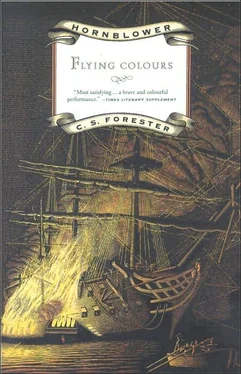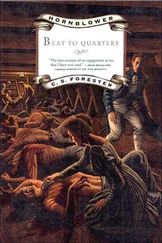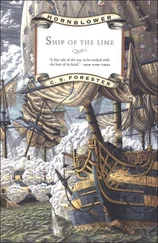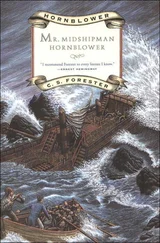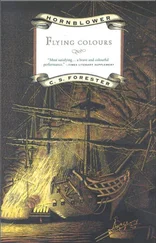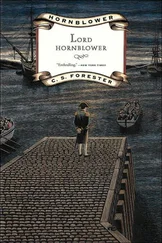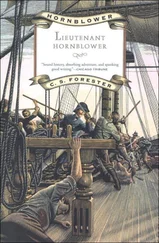Cecil Forester - Flying Colours
Здесь есть возможность читать онлайн «Cecil Forester - Flying Colours» весь текст электронной книги совершенно бесплатно (целиком полную версию без сокращений). В некоторых случаях можно слушать аудио, скачать через торрент в формате fb2 и присутствует краткое содержание. Год выпуска: 1989, ISBN: 1989, Издательство: Back Bay Books, Жанр: Исторические приключения, Путешествия и география, Морские приключения, на английском языке. Описание произведения, (предисловие) а так же отзывы посетителей доступны на портале библиотеки ЛибКат.
- Название:Flying Colours
- Автор:
- Издательство:Back Bay Books
- Жанр:
- Год:1989
- ISBN:0316289396
- Рейтинг книги:5 / 5. Голосов: 1
-
Избранное:Добавить в избранное
- Отзывы:
-
Ваша оценка:
- 100
- 1
- 2
- 3
- 4
- 5
Flying Colours: краткое содержание, описание и аннотация
Предлагаем к чтению аннотацию, описание, краткое содержание или предисловие (зависит от того, что написал сам автор книги «Flying Colours»). Если вы не нашли необходимую информацию о книге — напишите в комментариях, мы постараемся отыскать её.
Flying Colours — читать онлайн бесплатно полную книгу (весь текст) целиком
Ниже представлен текст книги, разбитый по страницам. Система сохранения места последней прочитанной страницы, позволяет с удобством читать онлайн бесплатно книгу «Flying Colours», без необходимости каждый раз заново искать на чём Вы остановились. Поставьте закладку, и сможете в любой момент перейти на страницу, на которой закончили чтение.
Интервал:
Закладка:
“No, no, of course not,” said the Governor hastily and out of countenance, like a parent denying to a child that a prospective dose of medicine would be unpleasant.
He looked round for some way of changing the subject, and fortunate chance brought one. From far below in the bowels of the fortress came a muffled sound of cheering—English cheers, not Italian screeches.
“That must be those men of yours, Captain,” said the General, smiling again. “I fancy the new prisoner must have told them by now the story of last night’s affair.”
“The new prisoner?” demanded Hornblower.
“Yes, indeed. A man who fell overboard from the admiral’s ship—the Pluto, is it not?—and had to swim ashore. Ah, I suspected you would be interested, Captain. Yes, off you go and talk to him. Here, Dupont, take charge of the captain and escort him to the prison.”
Hornblower could hardly spare the time in which to thank his captor, so eager was he to interview the new arrival and hear what he had to say. Two weeks as a prisoner had already had their effect in giving him a thirst for news. He ran down the ramp, Dupont puffing beside him, across the cobbled court, in through the door which a sentry opened for him at a gesture from his escort, down the dark stairway to the iron-studded door where stood two sentries on duty. With a great clattering of keys the doors were opened for him and he walked into the room.
It was a wide low room—a disused storeroom, in fact—lit and ventilated only by a few heavily barred apertures opening into the fortress ditch. It stank of closely confined humanity and it was at present filled with a babel of sound as what was left of the crew of the Sutherland plied questions at someone hidden in the middle of the crowd. At Hornblower’s entrance the crowd fell apart and the new prisoner came forward; he was naked save for his duck trousers and a long pigtail hung down his back.
“Who are you?” demanded Hornblower.
“Phillips, sir. Maintopman in the Pluto .”
His honest blue eyes met Hornblower’s gaze without a sign of flinching. Hornblower could guess that he was neither a deserter nor a spy—he had borne both possibilities in mind.
“How did you come here?”
“We was settin’ sail, sir, to beat out o’ the bay. We’d just seen the old Sutherland take fire, an’ Cap’n Elliott he says to us, he says, sir, ‘Now’s the time, my lads. Top’sls and to’gar’ns.’ So up we went aloft, sir, an’ I’d just taken the earring o’ the main to’gar’n when down came the mast, sir, an’ I was pitched off into the water. So was a lot o’ my mates, sir, but just then the Frenchy which was burnin’ blew up, an’ I think the wreckage killed a lot of ‘em, sir, ‘cos I found I was alone, an’ Pluto was gone away, an’ so I swum for the shore, an’ there was a lot of Frenchies what I think had swum from the burning Frenchy an’ they took me to some sojers an’ the sojers brought me here, sir. There was a orficer what arst me questions—it’d ‘a made you laugh, sir, to hear him trying to speak English—but I wasn’t sayin’ nothin’, sir. An’ when they see that they puts me in here along with the others, sir. I was just telling ‘em about the fight, sir. There was the old Pluto, an’ Caligula, sir, an’—”
“Yes, I saw it,” said Hornblower, shortly. “I saw that Pluto had lost her main topmast. Was she knocked about much?”
“Lor’ bless you, sir, no, sir. We hadn’t had half a dozen shot come aboard, an’ they didn’t do no damage, barrin’ the one that wounded the Admiral.”
“The Admiral!” Hornblower reeled a little as he stood, as though he had been struck. “Admiral Leighton, d’you mean?”
“Admiral Leighton, sir.”
“Was—was he badly hurt?”
“I dunno, sir. I didn’t see it meself, o’ course, sir, seein’ as how I was on the main deck at the time. Sailmaker’s mate, he told me, sir, that the Admiral had been hit by a splinter. Cooper’s mate told him, sir, what helped to carry him below.”
Hornblower could say no more for the present. He could only stare at the kindly stupid face of the sailor before him. Yet even in that moment he could take note of the fact that the sailor was not in the least moved by the wounding of his Admiral. Nelson’s death had put the whole fleet into mourning, and he knew of half a dozen other flag officers whose death or whose wounding would have brought tears into the eyes of the men serving under him. If it had been one of those, the man would have told of the accident to him before mentioning his own misadventures. Hornblower had known before that Leighton was not beloved by his officers, and here was a clear proof that he was not beloved by his men either.
But perhaps Barbara had loved him. She had at least married him. Hornblower forced himself to speak, to bear himself naturally.
“That will do,” he said, curtly, and then looked round to catch his coxswain’s eye. “Anything to report, Brown?”
“No, sir. All well, sir.”
Hornblower rapped on the door behind him to be let out of prison, to be conducted by his guard back to his room again, where he could walk up and down, three steps each way, his brain seething like a pot on a fire. He only knew enough to unsettle him, to make him anxious. Leighton had been wounded, but that did not mean that he would die. A splinter wound—that might mean much or little. Yet he had been carried below. No admiral would have allowed that, if he had been able to resist—not in the heat of a fight, at any rate. His face might be lacerated or his belly torn open—Hornblower, shuddering, shook his mind free from the memories of all the horrible wounds he had seen received on ship board during twenty years’ service. But, coldbloodedly, it was an even chance that Leighton would die—Hornblower had signed too many casualty lists to be unaware of the chances of a wounded man’s recovery.
If Leighton were to die, Barbara would be free again. But what had that to do with him, a married man—a married man whose wife was pregnant? She would be no nearer to him, not while Maria lived. And yet it assuaged his jealousy to think of her as a widow. But then perhaps she would marry again, and he would have to go once more through all the torment he had endured when he had first heard of her marriage to Leighton. In that case he would rather Leighton lived—a cripple, perhaps mutilated or impotent; the implications of that train of thought drove him into a paroxysm of too-rapid thinking from which he only emerged after a desperate struggle for sanity.
In the cold reaction which followed he sneered at himself for a fool. He was the prisoner of a man whose empire extended from the Baltic to Gibraltar. He told himself he would be an old man, that his child and Maria’s would be grown up before he regained his liberty. And then with a sudden shock he remembered that he might soon be dead—shot for violation of the laws of war. Strange how he could forget that possibility. Sneering, he told himself that he had a coward’s mind which could leave the imminence of death out of its calculations because the possibility was too monstrous to bear contemplation.
There was something else he had not reckoned upon lately, too. If Bonaparte did not have him shot, if he regained his freedom, even then he still had to run the gauntlet of a court martial for the loss of the Sutherland. A court martial might decree for him death or disgrace or ruin; the British public would not hear lightly of a British ship of the line surrendering, however great the odds against her. He would have liked to ask Phillips, the seaman from the Pluto, about what had been said in the fleet regarding the Sutherland’s action, whether the general verdict had been one of approval or not. But of course it would be impossible to ask; no captain could ask a seaman what the fleet thought of him, even if there was a chance of hearing the truth—which, too, was doubtful. He was compassed about with uncertainties—the uncertainties of his imprisonment, of the possibility of his trial by the French, of his future court martial, of Leighton’s wound. There was even an uncertainty regarding Maria; she was pregnant—would the child be a girl or a boy, would he ever see it, would anyone raise a finger to help her, would she be able to educate the child properly without his supervision?
Читать дальшеИнтервал:
Закладка:
Похожие книги на «Flying Colours»
Представляем Вашему вниманию похожие книги на «Flying Colours» списком для выбора. Мы отобрали схожую по названию и смыслу литературу в надежде предоставить читателям больше вариантов отыскать новые, интересные, ещё непрочитанные произведения.
Обсуждение, отзывы о книге «Flying Colours» и просто собственные мнения читателей. Оставьте ваши комментарии, напишите, что Вы думаете о произведении, его смысле или главных героях. Укажите что конкретно понравилось, а что нет, и почему Вы так считаете.
